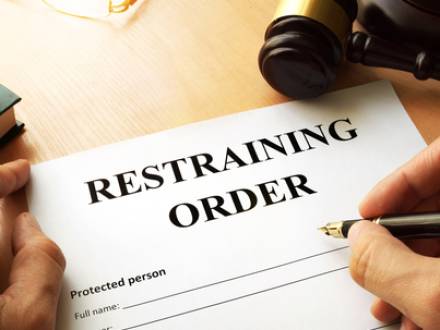Recent Blog Posts
How Can I Navigate a High-Conflict Child Custody Case?
 Child custody cases can be emotionally challenging, especially when parents are in high conflict. In Wisconsin, courts prioritize the child’s best interests, but navigating a high-conflict case requires strategic planning, clear communication, and a firm understanding of legal procedures. If you are facing a highly contested custody dispute, speak with a skilled Madison, WI family law attorney to understand how best to approach the case while protecting your rights and ensuring your child’s well-being.
Child custody cases can be emotionally challenging, especially when parents are in high conflict. In Wisconsin, courts prioritize the child’s best interests, but navigating a high-conflict case requires strategic planning, clear communication, and a firm understanding of legal procedures. If you are facing a highly contested custody dispute, speak with a skilled Madison, WI family law attorney to understand how best to approach the case while protecting your rights and ensuring your child’s well-being.
What Happens During a High-Conflict Custody Battle?
A child custody case is considered high-conflict if the parents have severe disagreements on major issues like where the child will live, how they will divide the child’s time, and who will make important decisions that affect the child, for example, regarding education, healthcare, and other important aspects. These cases can involve multiple hearings, accusations of parental alienation, false allegations of abuse or neglect, and significant emotional strain on everyone involved.
What Can I Do If I Suspect Parental Alienation in Wisconsin?
 Parental alienation is when one parent intentionally undermines their child’s relationship with the other parent. It can take many forms, with some being harder to detect. A parent can lie about the other parent, make derogatory comments that let the child understand how negatively they feel, keep the child away from the other parent but claim that the other parent refuses to attend visitation or manipulate the child into rejecting the other parent. If you are a victim of parental alienation, speak with a qualified Madison, WI family law attorney to understand your options for protecting your relationship with your child and addressing the issue legally.
Parental alienation is when one parent intentionally undermines their child’s relationship with the other parent. It can take many forms, with some being harder to detect. A parent can lie about the other parent, make derogatory comments that let the child understand how negatively they feel, keep the child away from the other parent but claim that the other parent refuses to attend visitation or manipulate the child into rejecting the other parent. If you are a victim of parental alienation, speak with a qualified Madison, WI family law attorney to understand your options for protecting your relationship with your child and addressing the issue legally.
How Can I Tell if This Is Parental Alienation?
You cannot take action to stop parental alienation if you are not sure that is what is happening. It is important to recognize the signs so you can understand how to move forward. Some common indications include:
Coping with False Abuse Allegations During Divorce
 Some spouses will do almost anything to get an advantage in a divorce. Lying about what one’s spouse has said or done is exceptionally common in high-conflict divorce cases. However, making up abuse allegations takes this dishonest strategy to its extremes. Few things that can happen during a divorce are more painful than being falsely accused of abusing your spouse or worse, your children. If your spouse has a history of lying to get his way, it is best to be prepared for these types of allegations to surface. If your spouse has acted abusively toward you in the past, you should be aware that abusers often deflect blame from themselves by accusing their victims of the same acts they themselves committed. You will need an aggressive Rock County, WI high-conflict divorce lawyer to help you fight back. Abuse allegations could impact your child custody issue significantly if your spouse is believed.
Some spouses will do almost anything to get an advantage in a divorce. Lying about what one’s spouse has said or done is exceptionally common in high-conflict divorce cases. However, making up abuse allegations takes this dishonest strategy to its extremes. Few things that can happen during a divorce are more painful than being falsely accused of abusing your spouse or worse, your children. If your spouse has a history of lying to get his way, it is best to be prepared for these types of allegations to surface. If your spouse has acted abusively toward you in the past, you should be aware that abusers often deflect blame from themselves by accusing their victims of the same acts they themselves committed. You will need an aggressive Rock County, WI high-conflict divorce lawyer to help you fight back. Abuse allegations could impact your child custody issue significantly if your spouse is believed.
When to Litigate Your Divorce Without Trying Mediation
 Mediation is recommended to most spouses who are getting divorced, but uncontested divorce is not for everyone. Even courts frequently encourage divorcing spouses to try for an uncontested divorce. In some divorces, there is such animosity between the parties that reaching an agreement is unlikely. In others, trying to use mediation or even attorney-led negotiation might put one party at risk of being manipulated or even harmed by an abusive or narcissistic spouse. In some high-net-worth divorces, there is simply so much at stake that divorce litigation is likely to be well worth it for the prevailing party. Your Madison, WI divorce attorney may recommend proceeding straight to litigation if circumstances like these are present in your case.
Mediation is recommended to most spouses who are getting divorced, but uncontested divorce is not for everyone. Even courts frequently encourage divorcing spouses to try for an uncontested divorce. In some divorces, there is such animosity between the parties that reaching an agreement is unlikely. In others, trying to use mediation or even attorney-led negotiation might put one party at risk of being manipulated or even harmed by an abusive or narcissistic spouse. In some high-net-worth divorces, there is simply so much at stake that divorce litigation is likely to be well worth it for the prevailing party. Your Madison, WI divorce attorney may recommend proceeding straight to litigation if circumstances like these are present in your case.
Mediation and Narcissistic Spouses
Narcissists are notorious manipulators. A narcissist may see divorce mediation as an opportunity to convince you to stay. Some narcissists will use a love-bombing technique by making overly gracious offers, only to change their minds when their partners try to accept and move forward with the divorce. Others will simply keep stalling indefinitely just to maintain control over their spouses for as long as possible. If you have identified your spouse as a narcissist, it may be best to litigate your divorce without attempting out-of-court resolution talks.
Should I Get a Restraining Order During Divorce?
 Restraining orders can be a valuable tool for people who have experienced domestic abuse. Domestic abuse does not mean only physical violence - other forms of abuse, such as stalking and making threats, can count as domestic abuse for the purpose of getting a restraining order. Having a restraining order in place can greatly reduce the chances that your spouse will commit further abuse against you or your children during and after your divorce. Even once you have a restraining order, it is still important to take steps to protect yourself, such as changing the locks on your doors and installing a security camera at your door. Your spouse may choose to violate the terms of the restraining order, but having one in place can enable the police to intervene immediately if your spouse attempts to make contact with you or appears at your home or workplace. An experienced Rock County, WI domestic abuse attorney can help you apply for a protection order.
Restraining orders can be a valuable tool for people who have experienced domestic abuse. Domestic abuse does not mean only physical violence - other forms of abuse, such as stalking and making threats, can count as domestic abuse for the purpose of getting a restraining order. Having a restraining order in place can greatly reduce the chances that your spouse will commit further abuse against you or your children during and after your divorce. Even once you have a restraining order, it is still important to take steps to protect yourself, such as changing the locks on your doors and installing a security camera at your door. Your spouse may choose to violate the terms of the restraining order, but having one in place can enable the police to intervene immediately if your spouse attempts to make contact with you or appears at your home or workplace. An experienced Rock County, WI domestic abuse attorney can help you apply for a protection order.
Preparing for Divorce After a Long Marriage
 Divorce after a very short marriage often moves quite quickly. Spouses who were only married for a few years have not had much time to build up a marital estate. They are less likely to have had children, especially if the marriage was not very sound from the beginning. Spouses who have been married for a long time usually have more complex divorces. There is a lot more marital property to divide, and long-married spouses often have more complex property types that are not always as easy to divide. While your children are likely grown adults, you will still need to navigate future holidays and family events. Then, there is the personal side of getting a fresh start as a mature adult. If you are ending a long marriage, you need to be represented by an aggressive Madison, WI divorce lawyer.
Divorce after a very short marriage often moves quite quickly. Spouses who were only married for a few years have not had much time to build up a marital estate. They are less likely to have had children, especially if the marriage was not very sound from the beginning. Spouses who have been married for a long time usually have more complex divorces. There is a lot more marital property to divide, and long-married spouses often have more complex property types that are not always as easy to divide. While your children are likely grown adults, you will still need to navigate future holidays and family events. Then, there is the personal side of getting a fresh start as a mature adult. If you are ending a long marriage, you need to be represented by an aggressive Madison, WI divorce lawyer.
Property Division, Alimony, and Complex Financial Situations
The longer you have been married, the more intertwined your finances are with your spouse’s. You likely share some appreciating assets, like a vacation home you rent out for extra income or a strong stock portfolio. Creative solutions are often called for. Some spouses continue co-ownership of some assets after divorce because it is easier for their family and prevents financial losses.
Options if a Child Will Not Cooperate in Custody Exchanges
 Co-parenting can bring a lot of new and significant challenges to your life. Most children want to maintain a relationship with both parents and look forward to seeing both. However, some children do favor spending time with one parent over the other. Sometimes, this is because your child took sides in your divorce. Other times, it is because one parent is less permissive than the other, or because one parent lives near the child’s longtime friends and the other has relocated. Children who feel strongly about staying with one parent may start refusing to cooperate with custody exchanges. If your child is protesting a custody exchange, there are some steps that you as a parent can take to ensure both compliance with your court-ordered child placement schedule and your children’s safety and well-being. An experienced Madison, WI child custody lawyer can step in if legal action is needed.
Co-parenting can bring a lot of new and significant challenges to your life. Most children want to maintain a relationship with both parents and look forward to seeing both. However, some children do favor spending time with one parent over the other. Sometimes, this is because your child took sides in your divorce. Other times, it is because one parent is less permissive than the other, or because one parent lives near the child’s longtime friends and the other has relocated. Children who feel strongly about staying with one parent may start refusing to cooperate with custody exchanges. If your child is protesting a custody exchange, there are some steps that you as a parent can take to ensure both compliance with your court-ordered child placement schedule and your children’s safety and well-being. An experienced Madison, WI child custody lawyer can step in if legal action is needed.
Should I Wait Until After the Holidays to File for Divorce?
 There is a massive cultural emphasis on family togetherness during the winter holidays. A large number of holiday movies feature people’s desperate attempts to get back to their families in time for a major holiday, or families reconciling just in time to spend the holidays together. In real life, the holidays do not magically fix broken marriages. If you know that yours is coming to an end, you are faced with a decision - do you file for divorce now, or wait until the holidays are over? Whether you ultimately decide to divorce now or wait, it is best to involve an experienced and aggressive Rock County, WI divorce lawyer as soon as you have determined that you want to end your marriage.
There is a massive cultural emphasis on family togetherness during the winter holidays. A large number of holiday movies feature people’s desperate attempts to get back to their families in time for a major holiday, or families reconciling just in time to spend the holidays together. In real life, the holidays do not magically fix broken marriages. If you know that yours is coming to an end, you are faced with a decision - do you file for divorce now, or wait until the holidays are over? Whether you ultimately decide to divorce now or wait, it is best to involve an experienced and aggressive Rock County, WI divorce lawyer as soon as you have determined that you want to end your marriage.
Reasons to File Before the Holidays
You may want to file now, before the holidays, if:
- You do not want to spend the holidays with your spouse - If you are dreading the thought of another holiday spent with your spouse, you may be much happier leaving now and spending the holidays with your own loved ones. This may be easier if you do not have young children together.
When to Start Preparing for Divorce Litigation
 A majority of divorces are resolved mostly or entirely out of court by agreement of the parties. However, divorce mediation is not for everyone. You can only resolve your divorce out of court if your spouse is willing to negotiate in good faith and give you a fair deal. If you strongly suspect that your spouse will not treat you fairly unless a judge forces him or her to, it is probably wise to start preparing for divorce litigation. While going through litigation might be challenging, it may be the only way to receive a final divorce decree that is just and reasonably protects your interests. If you anticipate going to trial in your divorce case, you need an experienced and aggressive Dane County, WI divorce litigation attorney.
A majority of divorces are resolved mostly or entirely out of court by agreement of the parties. However, divorce mediation is not for everyone. You can only resolve your divorce out of court if your spouse is willing to negotiate in good faith and give you a fair deal. If you strongly suspect that your spouse will not treat you fairly unless a judge forces him or her to, it is probably wise to start preparing for divorce litigation. While going through litigation might be challenging, it may be the only way to receive a final divorce decree that is just and reasonably protects your interests. If you anticipate going to trial in your divorce case, you need an experienced and aggressive Dane County, WI divorce litigation attorney.
Signs That You Need to Plan for Contested Divorce
In some complex cases, it is clear from the beginning that a divorce can only be resolved by going to trial. In others, one spouse will begin by agreeing to mediation only to become increasingly hostile until it is clear that no progress will be made until the court steps in. You may need to start preparing for litigation if:
Your Child’s Wishes and Custody Litigation
 Wisconsin courts aim to decide all child custody cases in the child’s favor. Judges decide how much time a child should spend with each parent and which parent to give legal decision-making duty to based on the child’s best interests. However, deciding what type of child custody plan is best for the child can be challenging for judges who do not know the child or parents personally and can only make a decision based on the information presented in court. One factor the courts use to decide who to place a child with is the child’s own wishes. In high-conflict litigation and in cases where both parents can offer very similar lifestyles, the child’s preferences may be very important. An experienced Dane County, WI child custody litigation lawyer can help you understand the role your child’s wishes will likely play in your case.
Wisconsin courts aim to decide all child custody cases in the child’s favor. Judges decide how much time a child should spend with each parent and which parent to give legal decision-making duty to based on the child’s best interests. However, deciding what type of child custody plan is best for the child can be challenging for judges who do not know the child or parents personally and can only make a decision based on the information presented in court. One factor the courts use to decide who to place a child with is the child’s own wishes. In high-conflict litigation and in cases where both parents can offer very similar lifestyles, the child’s preferences may be very important. An experienced Dane County, WI child custody litigation lawyer can help you understand the role your child’s wishes will likely play in your case.









